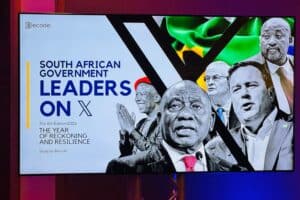Ramaphosa told traditional leaders today that land reform was a critical issue that has caused great pain for the dispossessed black South Africans.
Opening the House of Traditional Leaders today, President Cyril Ramaphosa said resolving land reform could not be delayed and should be attended to with decisive action taken to ensure it is settled.
He said land reform was a critical and sensitive issue steeped in the country’s history, and had caused a great deal of suffering for its citizens, whose dispossession of land was a defining feature of colonialism and apartheid.
“Land hunger among black South Africans continues to be genuine and pressing. It is urgent, and it is a matter that has to be resolved with great urgency,” the president said.
Ramaphosa said addressing land reform rested with both government and traditional leaders.
The president said the land reform programme must have clear targets and time frames, and must be guided by “sound legal, economic principles”, and must create job and investment opportunities.
He said the programme and the expropriation of land without compensation policy should not be viewed as a negative, but rather as an opportunity to grow the country’s economy and agricultural production and ensure food security is not compromised.
The Economic Freedom Fighters will today lead a motion for land expropriation without compensation in parliament today.
READ MORE: EFF plans to table a motion on land expropriation without compensation
“By providing more land to more producers for cultivation and by providing the necessary support, we are laying the foundation for what I would call an agricultural revolution. We are determined to work with traditional leaders to significantly expand agriculture not only to ensure food security, but also to create jobs on a significant scale and increase the value of our exports,” he said.
Ramaphosa urged traditional leaders to harness the capabilities and energies of the unemployed youth in rural areas, and to create jobs for them, as well as create opportunities for them through education, internships and learnerships.
He added he would like to see a huge influx of young people into the agricultural sector.
“As we embark on this agricultural revolution, the young people must be the agricultural revolutionaries that we have been looking for,” he said.
He said the success of developing rural areas would be impeded by unceasing urban migration, adding the task of traditional leaders was to incentivise young people to stay and actively partake in the economic growth of rural areas and subsequently the country.
“As it is now, as traditional leaders you are sitting on a sector of our economy that has shown the most growth. Agriculture in the last two quarters of our economy has contributed greater than all other sectors, even greater than mining, even greater than financial services and others,” Ramaphosa said.
He said there was a need for government to improve and resource TVET colleges in rural areas, particularly the reopening of agricultural colleges to provide training for the youth.
The president said during his recent visits to traditional leaders across the country, accompanied by the ANC chairperson Gwede Mantashe, he noted that large tracts of land lay fallow, which was a concerning and depressing situation.
Traditional leaders will debate the president’s address on March 1.
The expropriation of land without compensation was raised by Inkatha Freedom Party leader Mangosuthu Buthelezi during the Sona debate.
Buthelezi had urged that the policy should not be used to take land away from traditional leaders.
Buthelezi’s comments came after a committee led by former president Kgalema Motlanthe suggested that the Ingonyama Trust, which administers land in traditional areas, should be scrapped, a suggestion Buthelezi vehemently opposed during his Sona debate.
http://https://www.citizen.co.za/news/
For more news your way, follow The Citizen on Facebook and Twitter.






